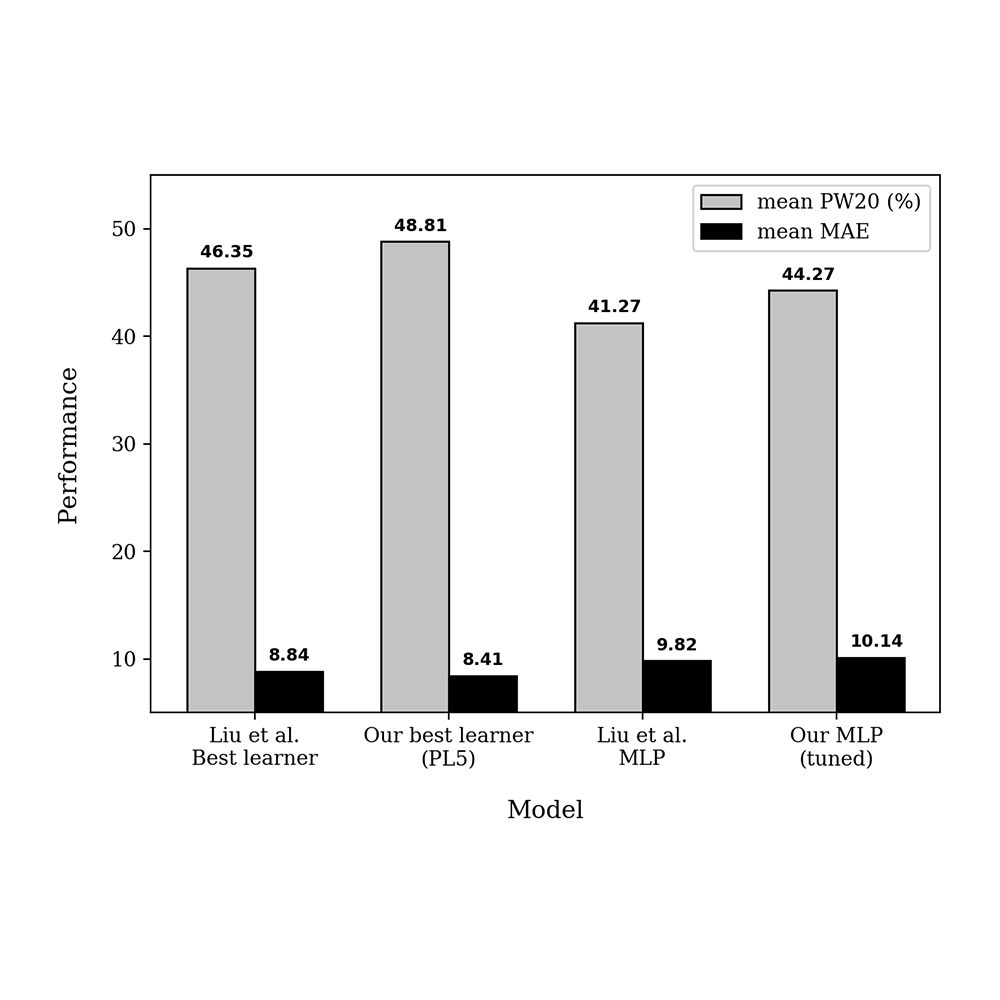

Warfarin is an effective blood thinner that prevents strokes and heart attacks. It requires individualised dosing that considers factors like age, size, diet, and genetics. Currently, this dosing is done by human experts, which is expensive and error-prone.

We used two datasets of warfarin patients to assess:
We trained 24 models across 6 parameter sets, optimising both manually and automatically — with genetic programming.
Models were assessed in terms of Mean Absolute Error (MAE) and Patients within 20% of target dose (PW20).
Results were measured on withheld data (20%) and shown to generalise using cross-validation.

Optimisation with genetic programming outperformed the international warfarin dosing benchmark by 5.1%, highlighting the effectiveness of autoML techniques.
Models performed similarly to estimates of human experts on current PathCare data, suggesting that software-assisted dosing can be implemented in South Africa.
Models were up to 29.5% more accurate when additional clinical and genetic parameters were used. PathCare can increase dosing accuracy by ~10% simply by collecting height, weight, race, and smoking history from their patients.
